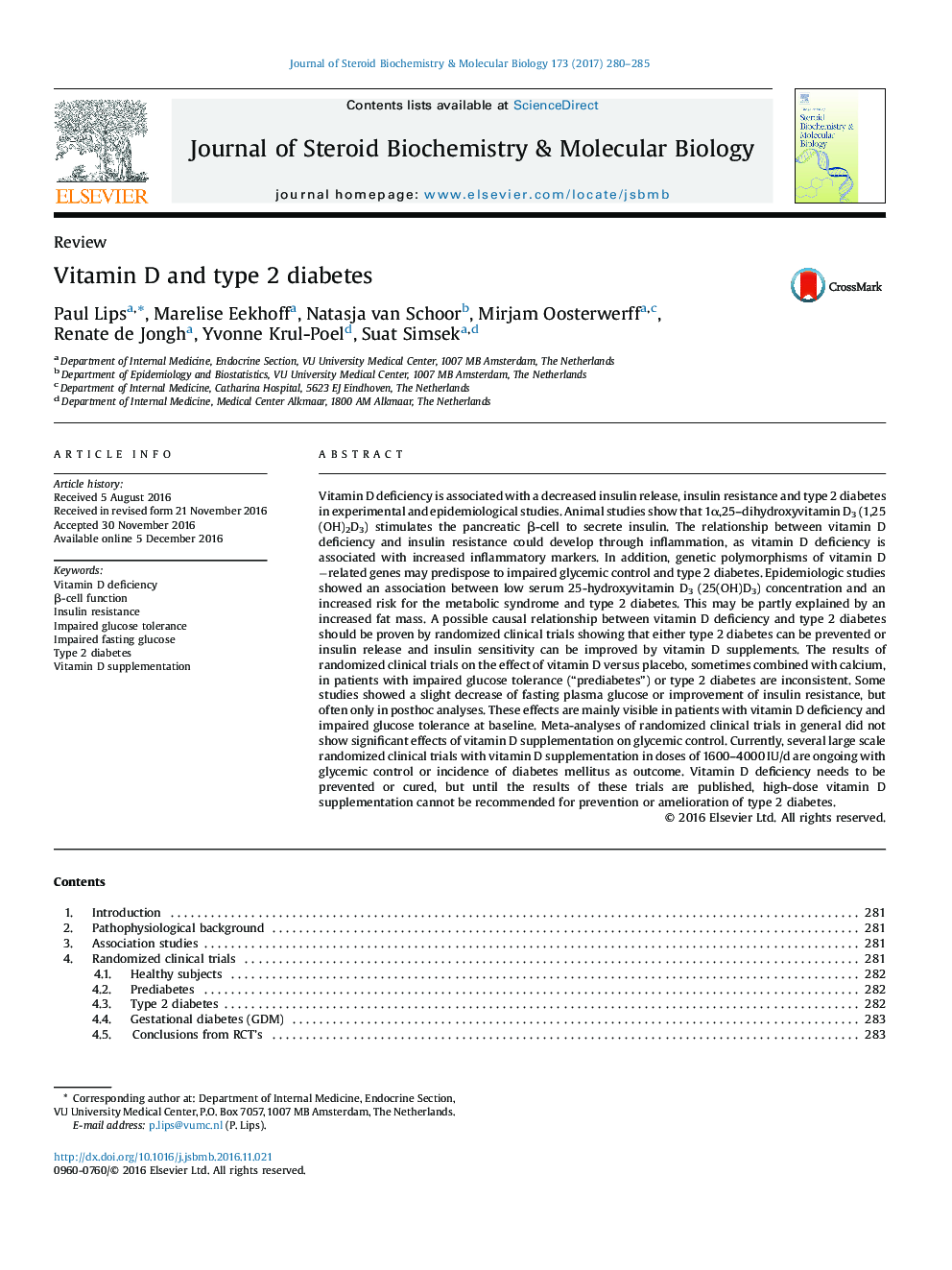| کد مقاله | کد نشریه | سال انتشار | مقاله انگلیسی | نسخه تمام متن |
|---|---|---|---|---|
| 5513019 | 1540974 | 2017 | 6 صفحه PDF | دانلود رایگان |

- Laboratory studies provide evidence for a relationship between 1,25-dihydroxyvitamin D and insulin release and insulin sensitivity.
- Epidemiological studies show associations between vitamin D deficiency and decreased glycemic control and type 2 diabetes mellitus.
- Randomized clinical trials on the effect of vitamin D vs placebo in healthy subjects, individuals with impaired glucose tolerance or type 2 diabetes mellitus show inconsistent results.
- Small effects of vitamin D are mainly visible in individuals with vitamin D deficiency and impaired glucose tolerance at baseline.
- Meta-analyses of randomized clinical trials did not show significant effects of vitamin D supplementation on glycemic control.
Vitamin D deficiency is associated with a decreased insulin release, insulin resistance and type 2 diabetes in experimental and epidemiological studies. Animal studies show that 1α,25-dihydroxyvitamin D3 (1,25(OH)2D3) stimulates the pancreatic β-cell to secrete insulin. The relationship between vitamin D deficiency and insulin resistance could develop through inflammation, as vitamin D deficiency is associated with increased inflammatory markers. In addition, genetic polymorphisms of vitamin D ârelated genes may predispose to impaired glycemic control and type 2 diabetes. Epidemiologic studies showed an association between low serum 25-hydroxyvitamin D3 (25(OH)D3) concentration and an increased risk for the metabolic syndrome and type 2 diabetes. This may be partly explained by an increased fat mass. A possible causal relationship between vitamin D deficiency and type 2 diabetes should be proven by randomized clinical trials showing that either type 2 diabetes can be prevented or insulin release and insulin sensitivity can be improved by vitamin D supplements. The results of randomized clinical trials on the effect of vitamin D versus placebo, sometimes combined with calcium, in patients with impaired glucose tolerance (“prediabetes”) or type 2 diabetes are inconsistent. Some studies showed a slight decrease of fasting plasma glucose or improvement of insulin resistance, but often only in posthoc analyses. These effects are mainly visible in patients with vitamin D deficiency and impaired glucose tolerance at baseline. Meta-analyses of randomized clinical trials in general did not show significant effects of vitamin D supplementation on glycemic control. Currently, several large scale randomized clinical trials with vitamin D supplementation in doses of 1600-4000 IU/d are ongoing with glycemic control or incidence of diabetes mellitus as outcome. Vitamin D deficiency needs to be prevented or cured, but until the results of these trials are published, high-dose vitamin D supplementation cannot be recommended for prevention or amelioration of type 2 diabetes.
Journal: The Journal of Steroid Biochemistry and Molecular Biology - Volume 173, October 2017, Pages 280-285